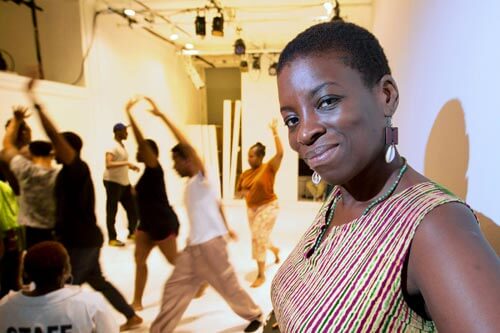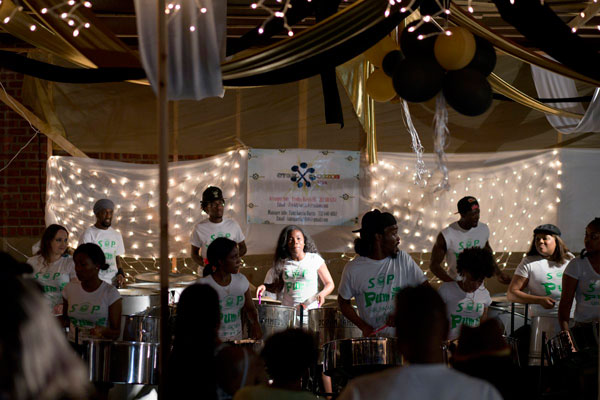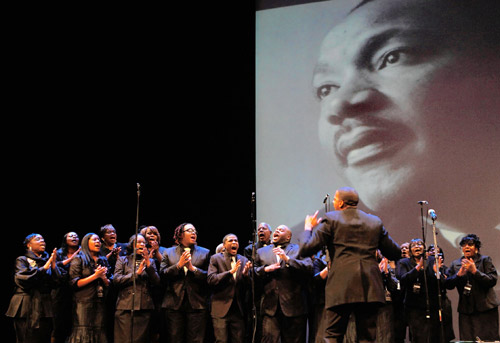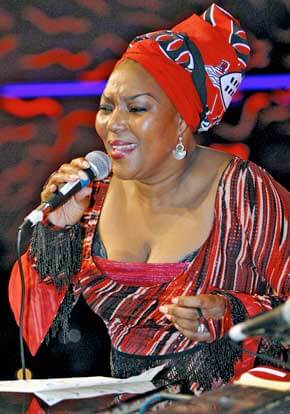“Flambeaux,” a musical play set during carnival in colonial Trinidad in the 1880’s, makes its world premier in Manhattan’s Theater for the New City. Nandi Keyi-Olungade’s newest work opens the Dream Up Festival Aug. 18. A cast of 25 brings to life the story of Sello (Augustus Wilson), a celebrated young stick fighter who dies after a fight during carnival festivities. His death haunts the community and sparks tensions with colonial authorities.
“After Emancipation in 1834, stickfighting became associated with carnival and was called Kalenda,” said Nandi. “At its height beginning in 1860, emancipated Africans organized into competing bands and held performances. Men, women and children would sing or dance to be entertained by the stickfighters performing to the rhythm of drums.”
As the play opens, one such celebration turns tragic when a procession leads to a fight and young Sello receives a blow to the back of his head and dies. The repercussions echo through Homer Yard, a tenement in Port of Spain, and become “Flambeaux’s” central theme as colonial authorities use it as an excuse to stifle carnival activities.
A debate takes place among the residents of the yard, including Sello’s mother, Mary (Angela Polite), who is the clairvoyant matriarch of Homer Yard; Sybil (Althea Alexis), an attractive, dark, bossy, sassy, crude and sexy woman who is queen of the Homer Yard masquerade band; Sagarat (Donnell Smith), a striking young country boy and one of an emerging group of African-Trinidadians with the ability to read and write; and Big City (Neil Dawson), Homer Yard’s “bad-John” and a visionary and troubled leader. Extremely strong and powerful, Big City consumes everything and everyone in his path and is accustomed to getting his way.
While the characters colorfully evoke the era, “Flambeaux” is also a historically accurate glimpse into a pivotal time in the history of Trinidad coinciding with the Camboulay Riots. Nandi said, “The flambeaux (torches) are central to the play both in the physical and metaphorical sense. On the physical plane, the people in Homer Yard are standing firm for the right to light the torches, which had become integral to the annual emancipation commemoration. On the metaphorical sense, the flambeaux represent the struggle of the general African community for light in the midst of sometimes unbearable conditions. Naturally, actual fire is not allowed in the theater, but the lighting story will be ably communicated by our veteran, award-winning lighting designer, Antoinette Tynes.”
The music (written by Lawrence Floyd, Roderick Warner, Nandi and directed by Jeff Bolding) spans the time gap between past and present. The beating of biscuit tins in a carnival procession, the extempo of the Chantwell or the call and response between him and his crew, and the Shango baptist spirituals performed onstage are the predecessors of modern calypso, soca and steel pan of carnival.
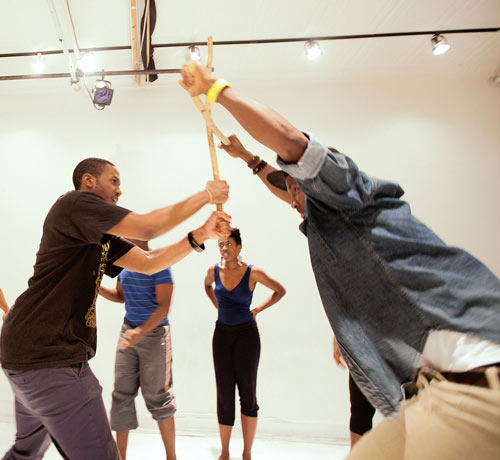
Photo by William Farrington


